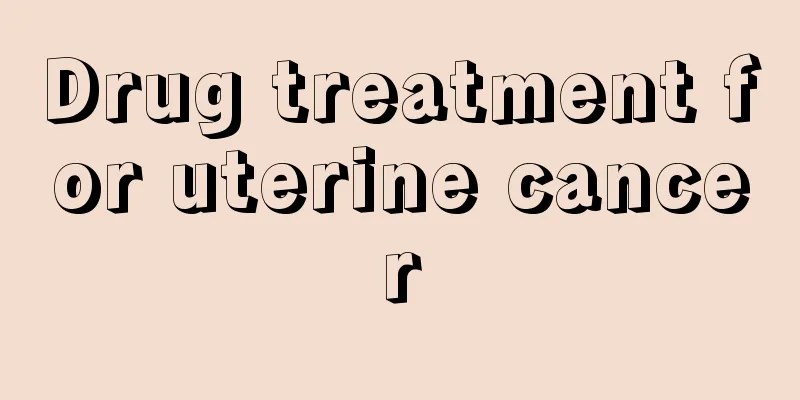Brief analysis: Clinical manifestations and symptoms of brain cancer

|
Do you know what symptoms brain cancer has? Can brain cancer be treated? Many patients and friends do not know much about brain cancer and always ask similar questions. In response to this question, let's talk about the symptoms of brain cancer today. The symptoms of brain cancer mainly include the following three points: 1. Headache is the earliest and most common symptom of brain cancer, seen in 82%~90% of patients, with different degrees for each person. Initially, it is intermittent, more and heavier in the morning when awake and at night. It is mostly throbbing dull pain or distending pain in the forehead or both temporal regions and becomes continuous. Coughing, exerting force, sneezing, leaning over, and lowering the head can make the headache worse. Children may not have headaches because the skull is not closed and the cranial sutures separate when the intracranial pressure increases, but they only complain of dizziness. Headaches are often ineffective with general analgesics, but are effectively treated with dehydrating agents. 2. Vomiting is one of the main symptoms, which occurs in about 2/3 of brain cancer patients. It is common when there is a severe headache, often accompanied by nausea, and the vomiting is often projectile. In severe cases, the patient cannot eat and vomits immediately after eating. The patient may often become severely dehydrated and lose weight sharply. Vomiting in infratentorial tumors usually occurs earlier and more severely than in supratentorial tumors. This is the result of stimulation of the medullary center, vestibular, vagus nerves, etc. Pediatric patients often have repeated vomiting as their only symptom. 3. Papilledema is the most important objective sign of increased intracranial pressure. It appears earlier in patients with infratentorial and midline brain cancers, and later in patients with supratentorial benign tumors, or even not at all. Papilledema does not affect vision in the early stages, and visual field examinations show an enlargement of the physiological blind spot. When papilledema persists for weeks or months, the optic disc gradually becomes pale, vision begins to deteriorate, and the visual field shrinks centripetally, which is a manifestation of optic nerve atrophy. Once paroxysmal amaurosis occurs, vision will rapidly deteriorate, and even blindness will soon occur. At this time, even if surgery relieves the intracranial hypertension, vision often does not improve. Now you know what the symptoms of brain cancer are. After being discharged from the hospital, brain cancer patients should pay attention to the warmth of the family environment and maintain the patient's mental health. Family members should give care and attention wholeheartedly, so that patients can feel the warmth of the family and increase their desire to survive. Brain cancer http://www..com.cn/zhongliu/na/ |
<<: Brief analysis: Early symptoms of brain cancer
>>: What are the causes of skin cancer?
Recommend
What are the easiest ways to make soap?
The method of making soap is actually very simple...
How to treat and care for perioral herpes?
Perioral herpes is also known as oral simplex her...
What are the symptoms of leg artery embolism?
Everyone needs to pay attention to the symptoms o...
Can brain cancer be prevented?
With the development of economy, more and more pe...
What's the matter with the pimple on my neck that doesn't hurt or itch?
Some people accidentally find some bumps on their...
The most effective gluteus maximus exercise method
For women, a nice-looking butt is a big plus. The...
What is salad oil
We eat salad oil in our daily lives, but do you k...
What is irritating
Getting angry is a term used in traditional Chine...
Can a patient with lung cancer have a child?
Lung cancer is a malignant tumor of the respirato...
The difference between beef cabbage and cabbage
Oxheart cabbage and cabbage are not the same dish...
What should patients with prostate cancer pay attention to in their diet? What are the dietary taboos for patients with prostate cancer?
Nowadays, more and more patients are suffering fr...
What should patients with cardiovascular and cerebrovascular diseases eat?
Cardiovascular and cerebrovascular disease is a d...
What is Magnetic Resonance
Magnetic resonance has some microscopic particles...
How to remove mango stains from clothes?
When we eat mangoes, we may leave mango stains on...
What are the early symptoms of lung cancer? If you have these four symptoms, you need to pay attention to them
The main early symptoms of lung cancer are: cough...









